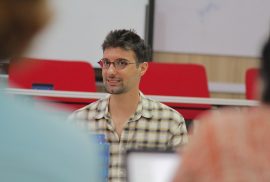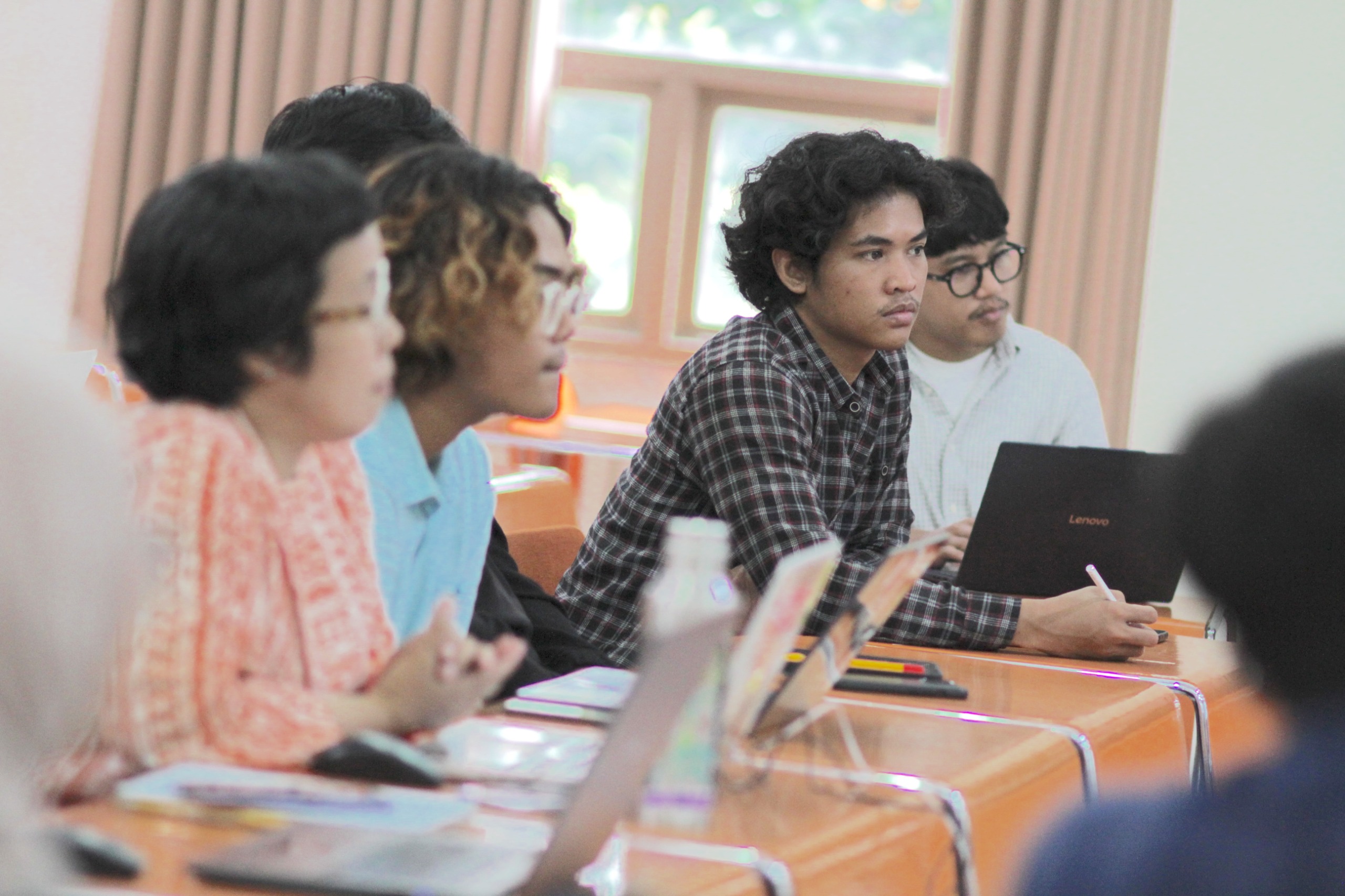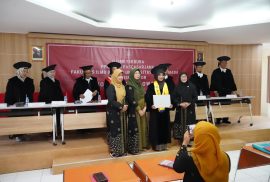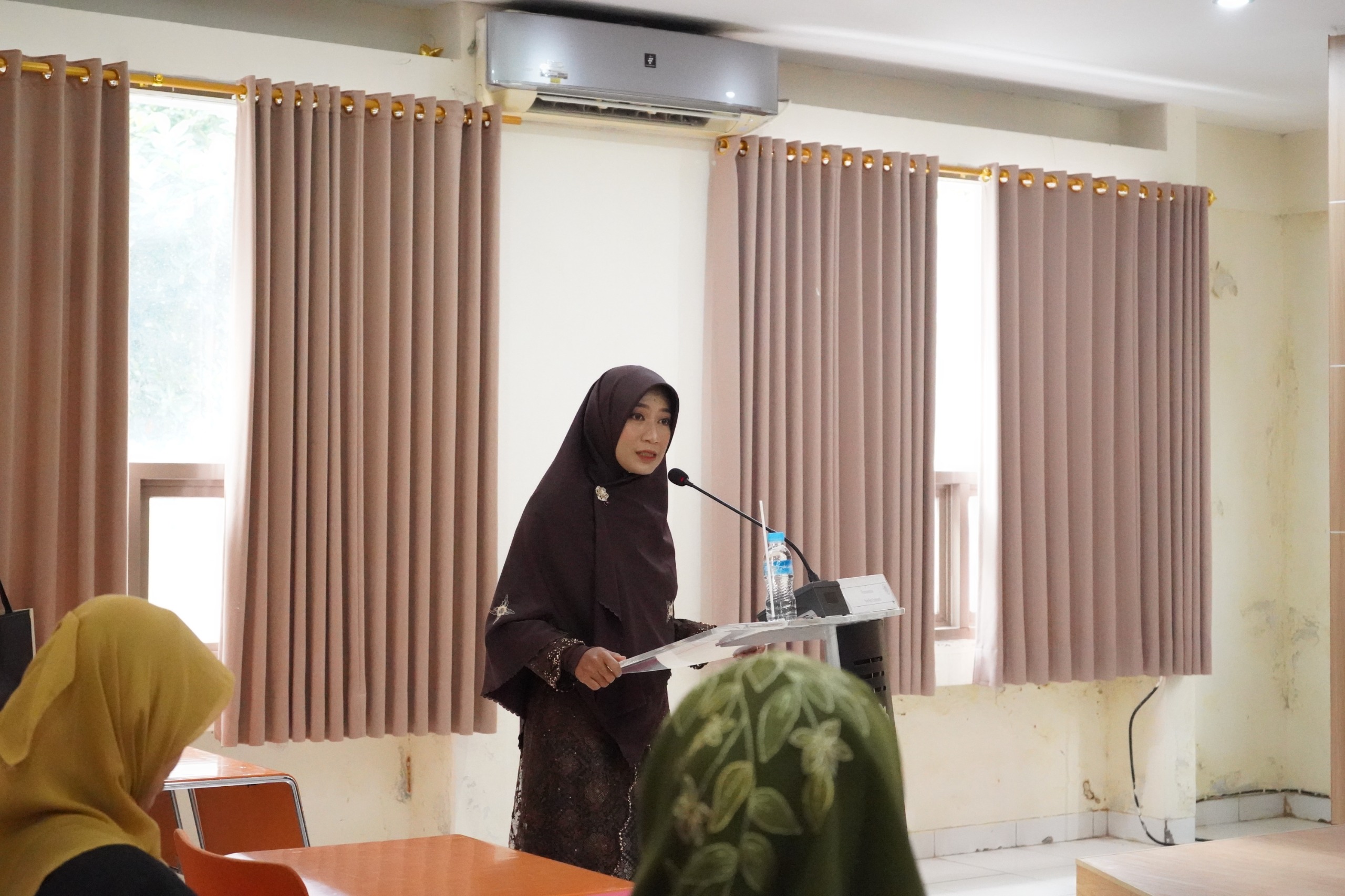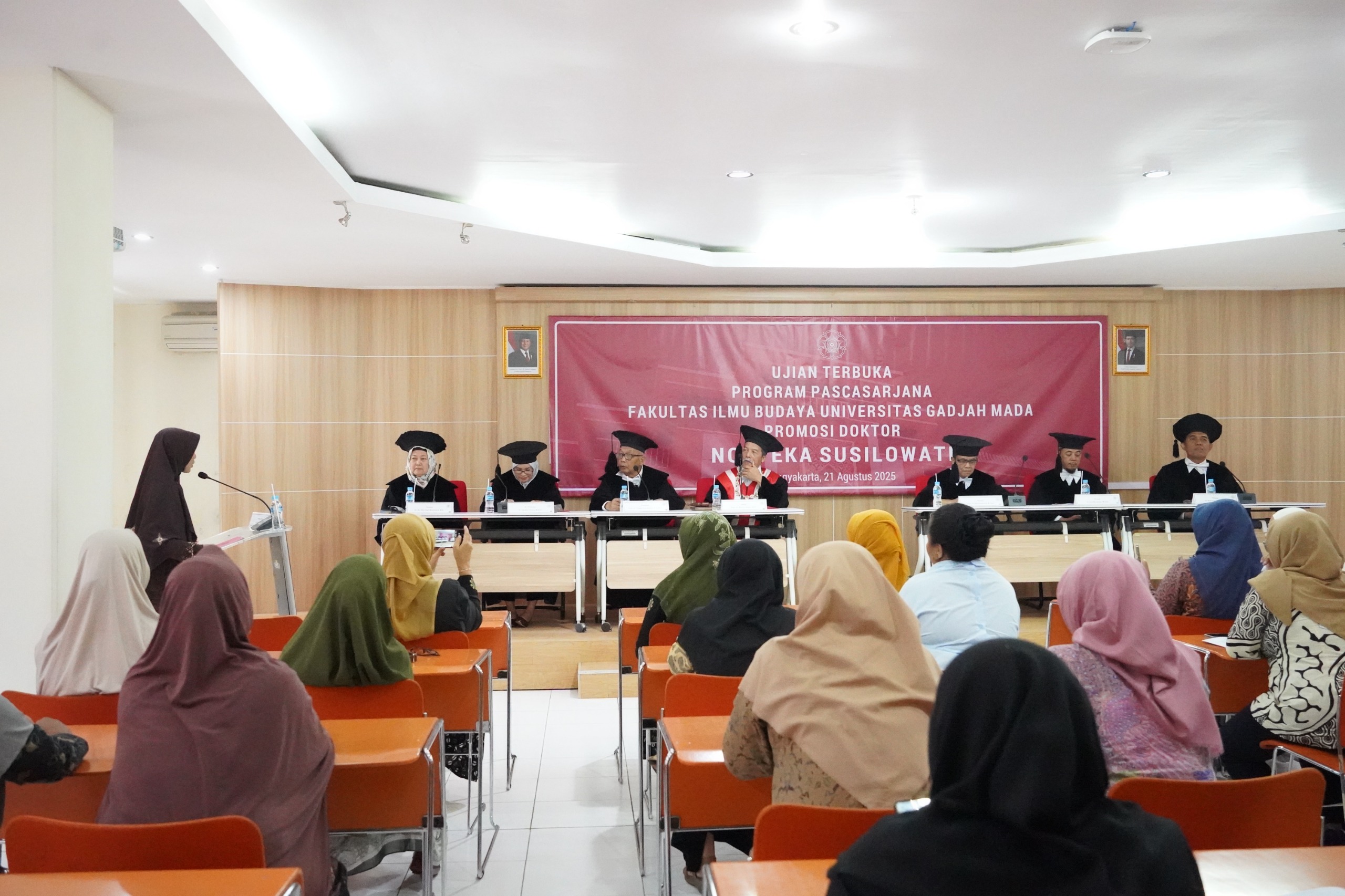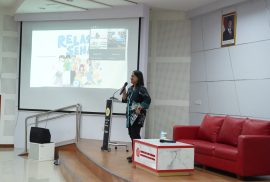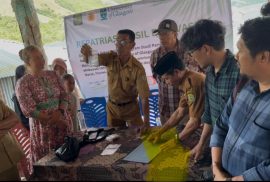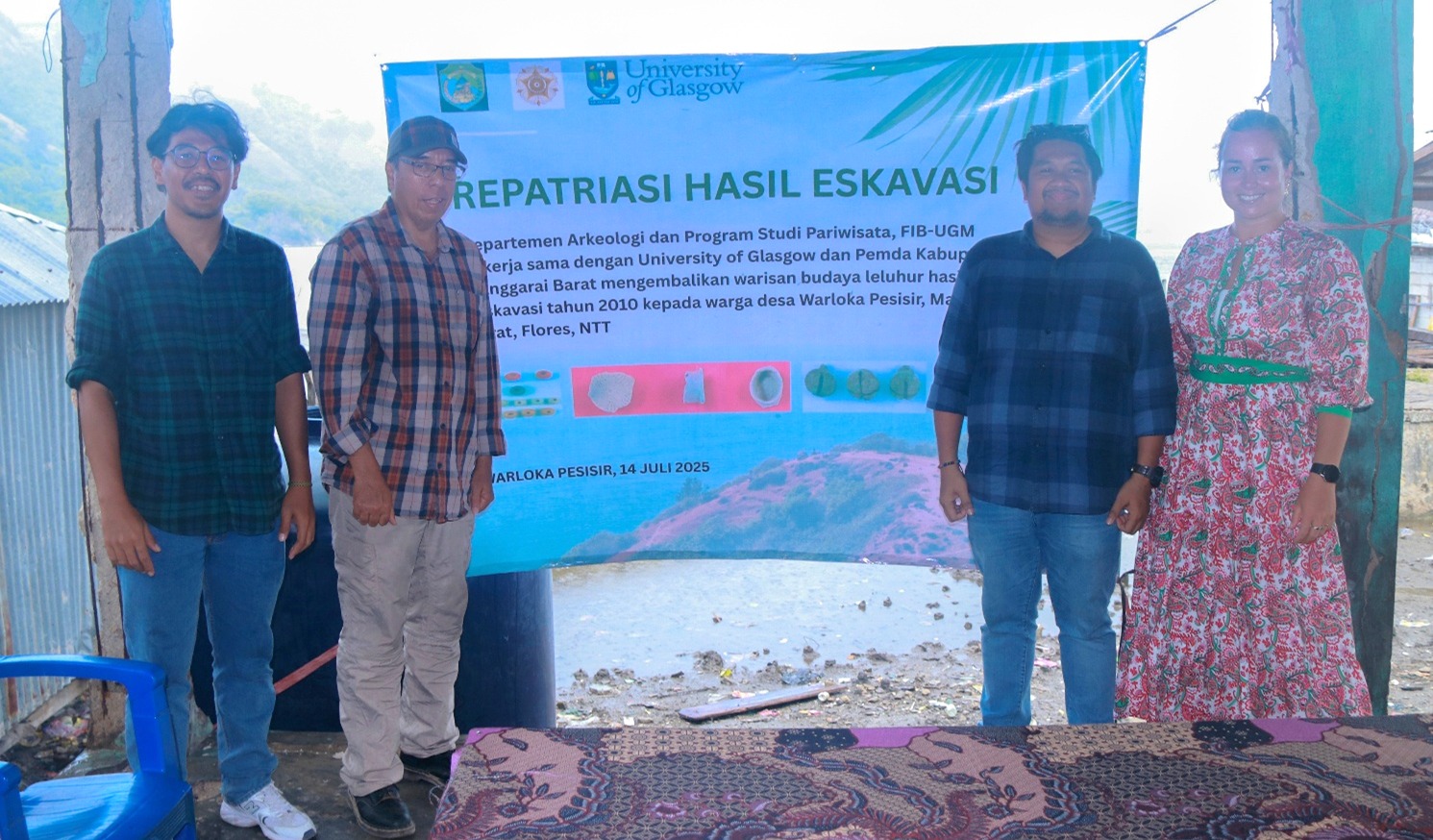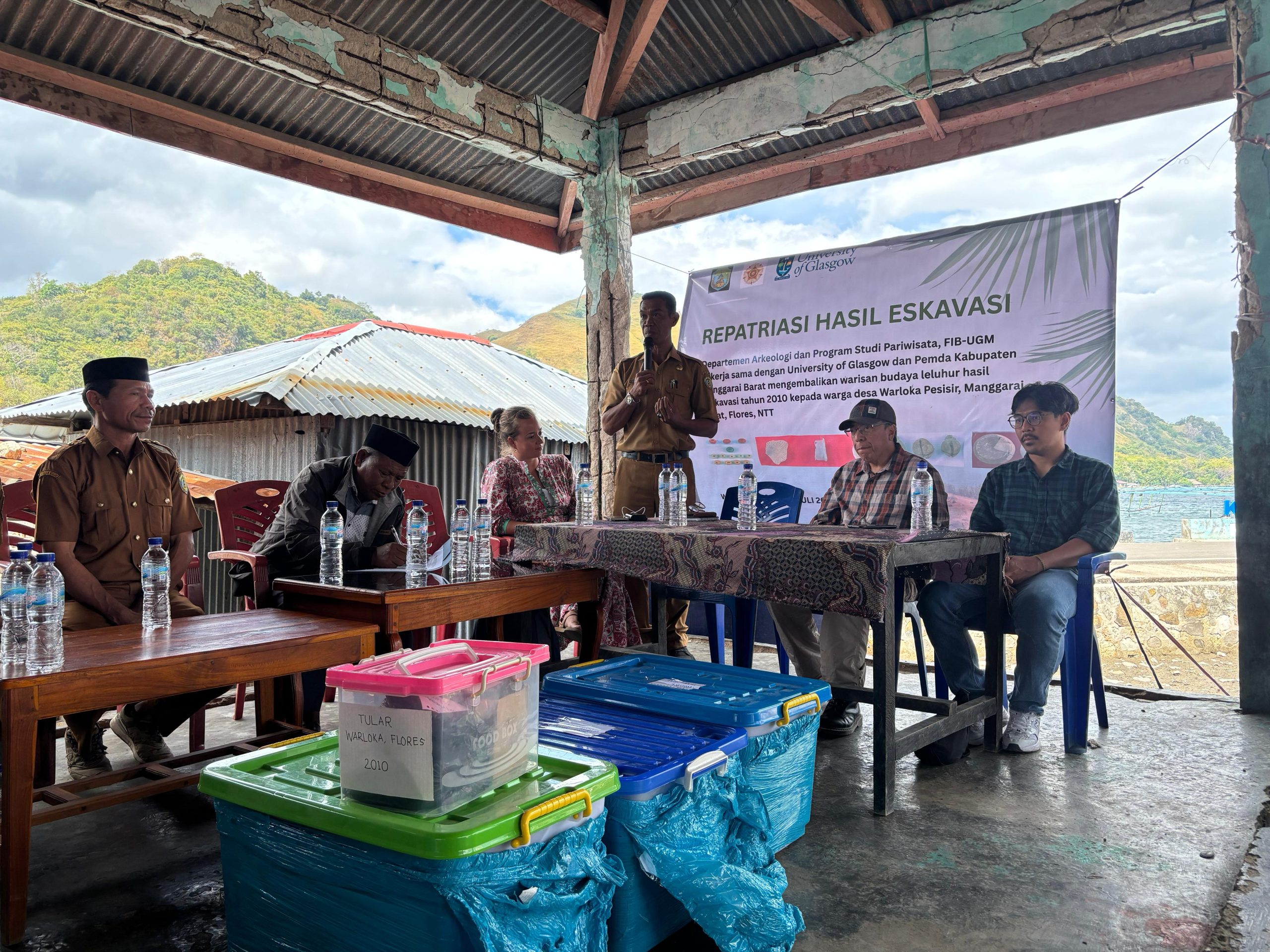Yogyakarta, 15/9/2025 – The Master’s Program in Literature, Faculty of Cultural Sciences, Universitas Gadjah Mada, held a public lecture titled “Make the Invisible Visible Again: Race, Gender, and Language in Popular Literature.” The event took place on Monday (15/9) at the Soegondo Auditorium, FIB UGM, featuring Dr. Ashika Prajnya Paramita, S.S., M.A. as the keynote speaker.
The lecture was attended by students and literature enthusiasts eager to explore how ideology operates within popular texts. With an engaging and communicative style, Dr. Ashika emphasized that literature is never a neutral narrative but always carries underlying ideologies, often hidden in plain sight.
Opening her talk with the questions “What’s visible?” and “What’s invisible?”, Dr. Ashika illustrated how everyday objects and cultural products that appear neutral are in fact loaded with ideological meaning. Examples ranged from the skin-tone bias in band-aids, beauty discourses in advertisements, to the privileging of certain languages over others. Quoting Antonio Gramsci, she reminded the audience that ideology operates through common sense—perceptions that society accepts as natural. “Everyday ideology is always around us. If we are not aware, we need to check,” she explained.
Dr. Ashika further examined how race and gender are represented in popular works, particularly in superhero films. She discussed debates surrounding Sam Wilson as Captain America and the assumption that Barack Obama’s presidency signaled the end of racism in the United States, while in reality, racial tensions persisted.
On gender, she highlighted how physical strength in superhero films is typically coded as masculine, while female characters are often given invisible or passive powers. Citing Judith Butler (1993), she reminded participants that “Gender is a kind of imitation for which there is no original,” stressing that masculinity and femininity are constructed and constantly shifting.
Bringing the discussion closer to home, Dr. Ashika invited the audience to critically read representations in the Indonesian film Satria Dewa: Gatotkaca (2022). She pointed out how white-skinned characters were often depicted as bosses, while darker-skinned characters appeared as security guards or lower-class workers. Language use also reinforced hierarchies, with Javanese accents assigned to “village folk,” while the protagonist spoke Jakarta urban slang.
“Literature is never just stories. Ideologies hide in plain sight. Reading critically is seeing power,” she concluded, marking the end of her main lecture.
The Q&A session was lively, with questions ranging from the representation of women in comics, ideological bias in reading literature, to the masculine standards in modern superheroes. Dr. Ashika underscored that ideological progress is never linear but rather messy and full of resistance. She also reminded the audience of the importance of readers’ critical awareness in examining their own biases.
This public lecture demonstrated that the study of popular literature goes beyond entertainment, offering critical reflections on power, representation, and ideology in everyday life. Through this event, the Master’s Program in Literature at UGM reaffirmed its commitment to providing an academic space that engages with contemporary issues while equipping students with critical perspectives in reading texts and culture.
Author: Marsya Kamila / Public Relations, Master’s Program in Literature


